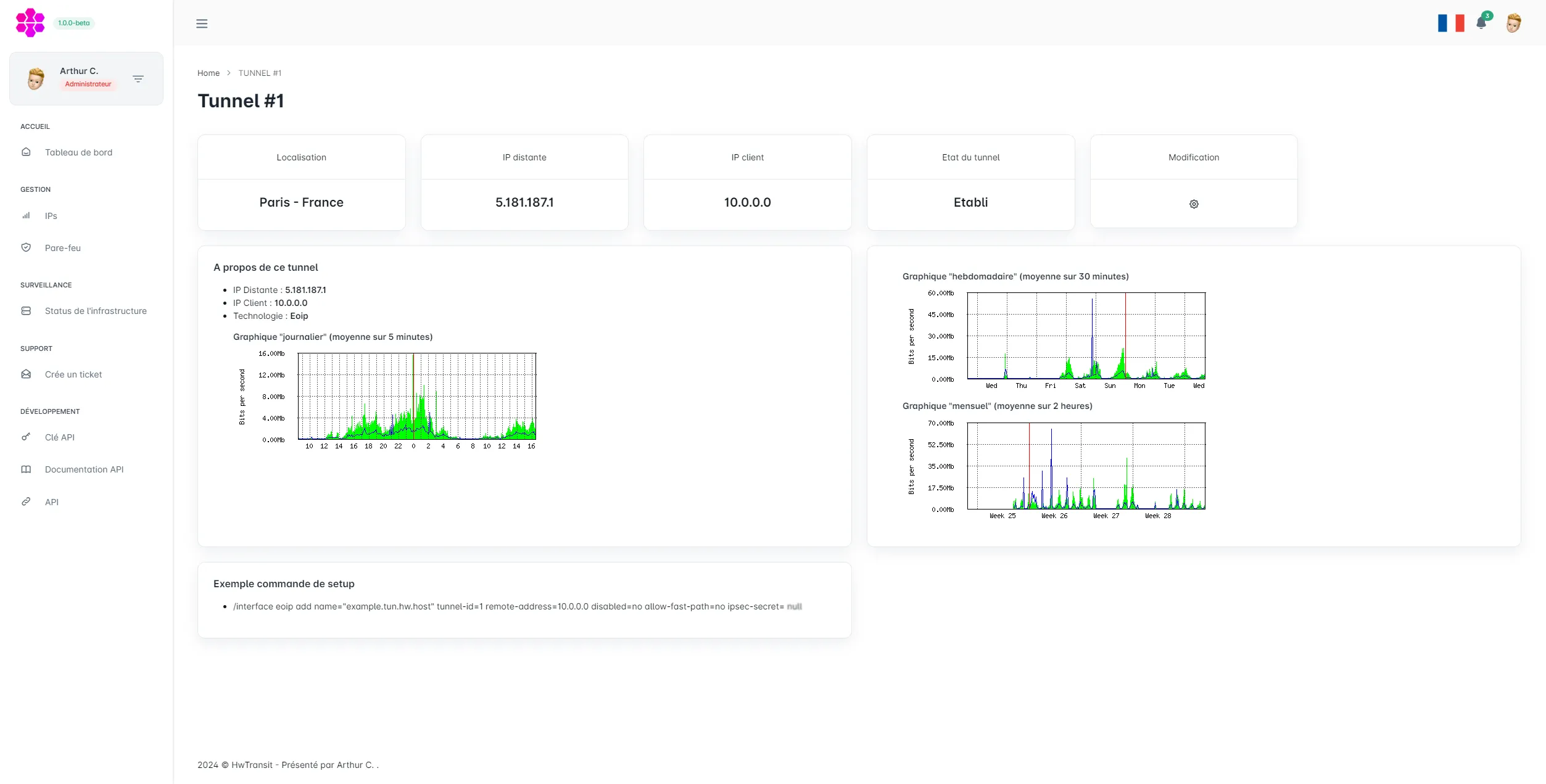Protection à distance des adresses IP
Notre Anti-DDoS robuste, sur n'importe quelle serveur !
Configurez selon vos besoins !
Avec de nombreuses fonctionnalités : Anti-DDoS, Alerte DDoS, sans rajouter de frais !
Nombre d'IPs: BYOIP (+0.00 €)
Choisissez votre commit en MBP/s (95th): 10 Mbps (+5.00 €)
Options
Prix totale: 5.00 € / Mois
Protocoles compatible avec nos tunnels IP
Explorez les protocoles compatible avec nos tunnel IPs, nous avons choisi les meilleurs et les plus fiable pour transiter des adresses IPv4
EoIP
Le protocole EOIP (Ethernet Over IP) est une technologie qui permet de créer des tunnels virtuels Ethernet à travers un réseau IP. EOIP est largement utilisé pour relier des sites distants via Internet ou d'autres réseaux IP, permettant une communication transparente et sécurisée entre les différents réseaux. C'est une solution simple et efficace pour étendre les réseaux locaux et faciliter le partage des ressources et des services.
VxLAN
Le protocole VXLAN (Virtual Extensible LAN) est une technologie de réseau virtuel qui permet de créer des réseaux locaux étendus (LAN) virtuels sur des infrastructures de réseau étendu (WAN). Le protocole VXLAN permet une évolutivité élevée, en permettant la création de milliers de segments de réseau virtuel, et offre une isolation et une flexibilité accrues dans les environnements de cloud computing et de virtualisation.
GRE
Le protocole GRE (Generic Routing Encapsulation) permet de créer des tunnels point-à-point en encapsulant divers protocoles dans des paquets IP. Il est utilisé pour relier des réseaux distants de manière transparente, transportant des paquets IPv4, IPv6 ou d'autres protocoles. Bien que non sécurisé par défaut, il est souvent associé à IPsec pour ajouter du chiffrement. Simple et flexible, GRE est couramment utilisé dans les réseaux d'entreprise et les configurations VPN pour acheminer du trafic entre sites distants.
WireGuard
Le protocole WireGuard est un protocole de réseau virtuel privé (VPN) moderne et léger, conçu pour offrir une connectivité sécurisée et efficace. Il se distingue par sa simplicité et sa facilité de configuration. WireGuard utilise une approche minimaliste en se concentrant sur les fonctionnalités essentielles pour sécuriser les connexions réseau. Il offre des performances élevées grâce à son architecture légère et à son algorithme de chiffrement performant.
Nos fonctionnalités
Voici les avantages d'avoir un serveur chez nous, vous possédez un réseau protégé, rapide et fiable.
Hardware dernière génération
Nous collaborons avec des partenaires techniques pour les matériels dernière génération afin de proposer un service qualitatif, fiable et sécurisé.
Serveurs dernière génération
- Nous utilisons exclusivement des serveurs de dernière génération, conçus pour offrir des performances optimales afin d'héberger vos applications dans les meilleures conditions.
Réseau indépendant
- Nous gérons notre propre réseau autonome (AS215144), ce qui nous permet de contrôler entièrement nos pools d'adresses IPv4 et IPv6, assurant ainsi une flexibilité maximale et une maîtrise complète de notre infrastructure. Grâce à une capacité réseau de 60 Gbp/s, nous garantissons des performances optimales, répondant aux besoins de nos clients avec une haute disponibilité et une réactivité exemplaire.
Uptime garanti de 99.9%
- Nous garantissons une disponibilité de 99,9 % sur l'ensemble de nos réseaux, assurant ainsi une fiabilité et une continuité de service optimales.
Une gestion complète de votre Tunnel IP
Nous avons développé notre panel de gestion pour gérer vos tunnels IP, et ainsi voir les statistiques en temps réel.
Vous pouvez ainsi configurer des notifications via des applications externes pour suivre les attaques DDoS.
500+ attaques mitigés sans 1 seul interruption
Chaque jour, de nouveaux types et vecteurs d'attaques ciblent notre réseau. Grâce à nos générateurs automatisés de règles anti-DDoS, adaptés en temps réel selon la nature des attaques, celles-ci sont bloquées de manière efficace et sans faille.
Près de 100 To de trafic malveilant ont été atténués avec succès grâce à nos différents systèmes, et 200 millions de paquets par seconde (PPS) ont été bloqués.
- Latence faible
- Protection Anti-DDoS
- 2 Points de présence européens
- 60Gbp/s de capacité réseau
- 5Tbp/s de capacité de filtrage
Foires aux questions
Plop ! Vous avez des questions ? Voici les questions fréquemment posées :

